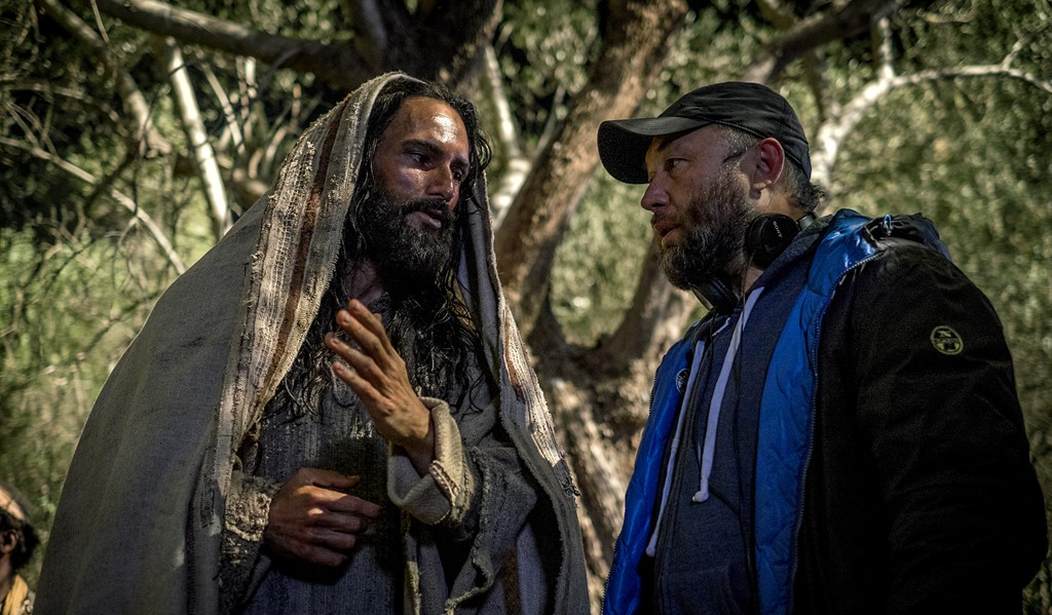The story of Ben-Hur is a timeless one. It is a story about love, betrayal and ultimately forgiveness. It's no surprise then that the Lew Wallace novel that originated this story has been adapted to the big screen so many times. Most famously, the 1959 classic adaptation starred Charlton Heston in the lead role and went on to win 11 Academy Awards. The newest remake — which arrives in theaters Friday — attempts to introduce a new generation to the classic tale.
Written by Keith R. Clarke and Oscar winner John Ridley, the new version starts at one of the story’s most memorable sequences: the chariot race. The two leading contenders are Judah Ben-Hur (Jack Huston) and Messala Severus (Toby Kebbell), one-time brothers who have been torn apart by jealousy and hatred. The story then flashes back to eight years earlier, when Messala was Judah’s beloved adopted brother.
The feature nicely lays out the foundation of this tight-knit relationship, showing deeply the bond they shared in their early years. Ultimately though, Messala’s own unhappiness pushes him to abandon his home and go off and fight for Rome — a choice that eventually destroys his friendship with Judah.
After an attempted assassination on Roman official Pontius Pilate — a plan that Judah knew nothing about — Messala forces Judah into slavery and takes his mother and sister away as punishment.
The overall arc of the story is the same as in earlier incantations but this new movie features more on Judah’s ever-changing perspective on the Jewish rebels who want freedom from the Romans. Here, Judah repeatedly calls these rebels “zealots.” He lacks sympathy for their plight. A rebel tells Judah that he “confuse[s] peace with freedom" but Judah doesn't care. Until he's forced to, that is.
It’s hard not to compare this feature with the 1959 original and this one lacks the depth and scope that the original (which clocks in with a remarkable running time of three hours and thirty-two minutes) was well-known for.
Recommended
However, this one does a lot by bringing a fresh intensity to some of the story's most iconic scenes. In the two most action-packed sequences— a ship’s destruction and the famous chariot race — director Timur Bekmambetov powerfully brings viewers into these scenes with an unflinching look at the death and destruction of these events. The violence is intense and difficult to watch but that only reminds viewers of what's at stake. When the camera zooms out, it captures the drama's epic scale and the wonder of new technological effects, that bring these settings to life.
At times though, the camera's zooming in on particular characters feels forced and overdone but when the camera shows the larger scale, it’s truly impressive to see these scenes come to life (especially with the 3D effects).
In the lead role, Huston does a solid job but it’s Toby Kebbell who truly stands out as a strong villain, whose personal vulnerabilities and thirst for acceptance lead him to make some terrible decisions. Moises Arias also does a solid job as Dismas, a Jewish rebel whose character has an important arc on the sidelines of the story. In the role of Ilderim, the man who inspires Ben-Hur's decision to race, Morgan Freeman brings a welcome gravitas to the story that brings that character's point of view to life.
There are some admittedly major changes to the story's end. Purists who loved the resolution of the 1959 feature will be displeased but others hoping for a more redemption-friendly conclusion will like the unique change. The story’s emotional turning point remains the same but in this version, there’s an added perspective that helps wrap up the story's painful conflict.
For those hoping this remake will match the scope of the earlier depictions, you will likely be disappointed. However, if you were hoping that this feature would tell the story and offer the timeless story to a new generation, you’ll likely be pleased with these admirable results.
Find out how religious movies are making a box office comeback by clicking here
























Join the conversation as a VIP Member